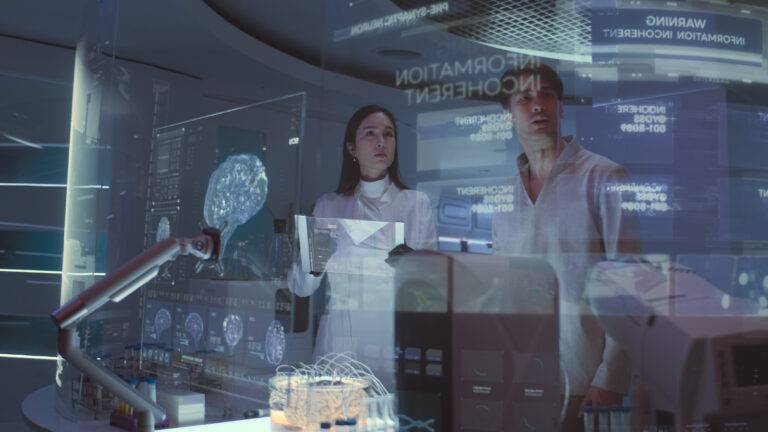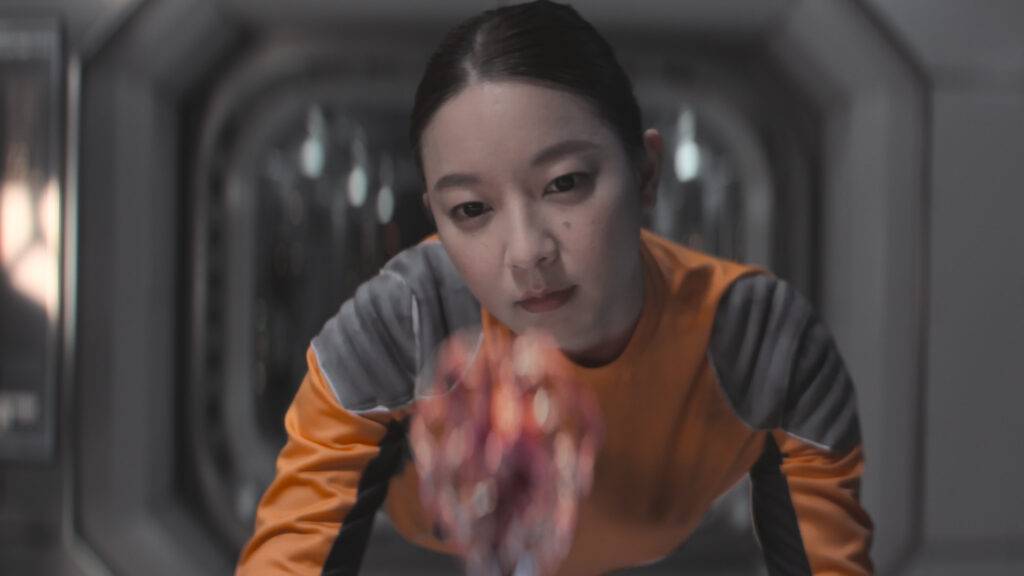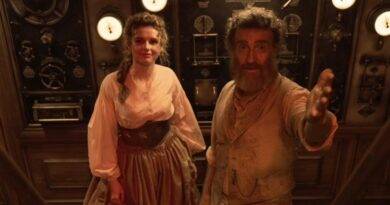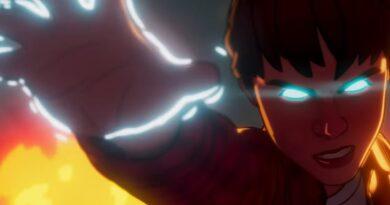
Tomorrow + I’ Episode 1 ‘Black Sheep’ Review
‘Tomorrow + I’ is a new four-part sci-fi anthology from Netflix, which takes a look at the clash of the effect of technology on Thai culture, and how the two collide in futuristic settings.
The first episode, ‘Black Sheep’, is set in the near future. Noon is an astronaut who’s been working on the ISS for three years. She’s trying to create 3D printed human organs, which can only be done in space, as they are too fragile to withstand Earth’s gravity during growth. On her return home, her shuttle malfunctions, leading to the deaths of everyone onboard. Her husband Nont is devastated and tries to find a way to bring her back.
He contacts a company which clones pet animals that have dies and convinces them to clone his wife. It’s illegal to clone humans, but Nont goes ahead anyway, ignoring the wishes of Noon’s parents, and even going so far as to break into the hospital and remove her head so her brain can be cloned.

During the cloning process, they hit a problem. The AI that analyses the brain’s memories finds an anomaly, it’s revealed that Noon had gender dysmorphia and previously considered transitioning, so now the AI needs to know whether to recreate her as male or female.
An anthology is always a great way to get a look at a wide range of views and ideas packed into a short time, and bound by a common element. In this case, it’s the reaction of Thai culture to modern advanced technology that can have life changing results. This is a good set up, and the basic premise provides for some interesting questions, yet here it seems to miss a couple of beats.
One key theme here is the idea of selfishness, and doing things to please others or to please ourselves. Nont’s desire to bring his wife back from the dead is driven by selfishness, as he has no idea if she would want to return, and is even willing to go so far as to repeatedly clone her until the process works properly. On the other hand, there’s Noon, who hides her true feelings in order to please her father, who wants his daughter to remain the same.
This eventually comes around to Nont making the decision to clone her as a man, putting aside everyone else’s wants, and focussing purely on what Noon wanted. While this is fine as a basic idea, it fails to take much of a look at the really intriguing part of the story: what’s it like for Noon to be cloned, to have essentially experienced death, and now to be brought back to life? Also, what’s it like for him to be brought back as a different sex, still with a lifetime of memories in a different body? These seem like the more interesting questions, and yet they’re barely touched on, aside from a couple of exposition scenes.
It’s clearly a conscious decision to make the film from Nont’s perspective, as it feeds into the themes of selfish behavior, and the question of choice, which is posed by Noon in the hypothetical conundrum of whether you should allow a murderer to die so his heart could be used to save a brilliant doctor.
That’s an interesting side to see things from, but there’s no exploration of the effects of such choices. We know how trying to please her father affected Noon as a young woman, but now nothing of how the cloning process affects him. Likewise, while we get to see how Thai culture reacts to gender dysphoria, there’s no indication of how they deal with a human clone.
The show looks fine, and performances are solid enough, it feels like a Netflix movie, and clearly has a relatively low budget, but could still have done more to get a feel of how this future is different, how tech has changed it, for better or worse.
The idea of bringing someone back from the dead has been a staple of sci-fi since ‘Frankenstein’, and this story has an interesting hook, but sadly it feels too lightweight and never gets deep enough into any of the questions it raises to be truly thought provoking.



